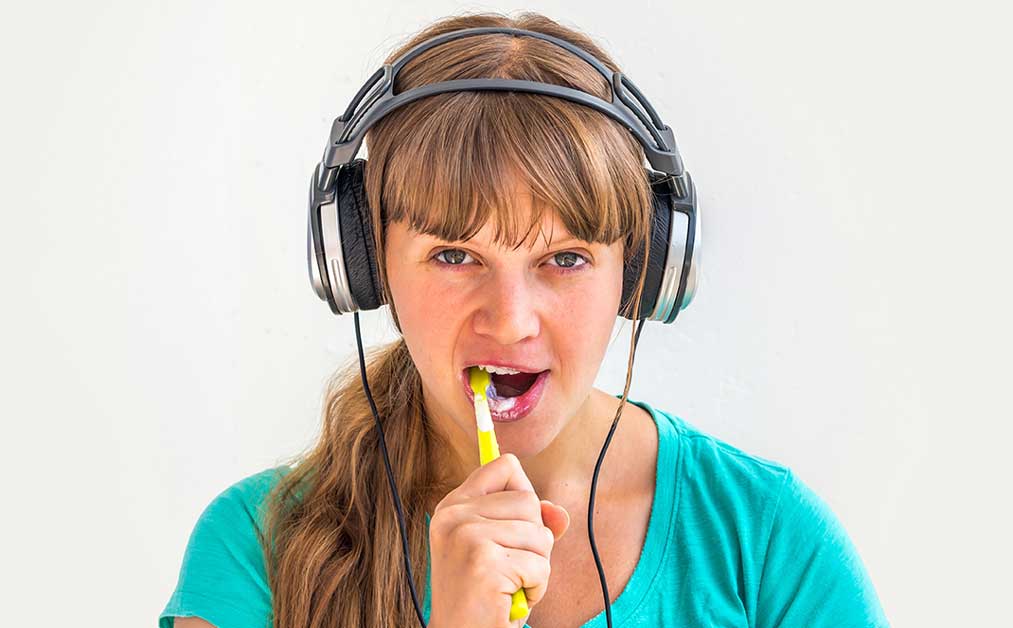As teenagers transition from childhood to adults, parents worry about diets, nutrition, braces and bad breath. How can you as a parent help with the teen years and teeth care for them to enjoy a beautiful smile and healthy teeth? Walk the talk. Remember, you need to take good care of your teeth so as to be an example to your teen. Your approach to visits to the dentist will set the tone for their attitude. Be well informed so that you can offer the best support to your teen.
Oral Health Hazards: Talk to your teen about:
- Smoking: It can stain teeth and gums, stain the tartar build-up on teeth and contribute to bad breath. Chewing tobacco, smoking cigarettes and cigars increase the risk of developing oral cancer and severe gum disease. Encourage your teen to share information with the dentist if they smoke.
- Oral Piercing: Ask your dentist to explain the hazards of oral piercing to your teen. Even though it may be popular among teenagers, it can cause infections, uncontrollable bleeding and nerve damage. One can choke on studs, barbells, or hoops that come loose, and the metal jewelry can also chip or crack teeth and damage gums. If your teenager is considering oral piercing, let your dentist know; he or she can help you make the safest choices.
- Eating Disorders: Both bulimia (binge-eating and vomiting) and anorexia (an inordinate fear of gaining weight often resulting in vomiting) are serious disorders that directly affect the appearance of teeth by eroding the tooth enamel. While a dentist can correct the deteriorated tooth enamel, he or she cannot treat the actual eating disorder. Should your teen show signs of it, talk to your dentist and your physician.
Special Dental issues: Consult your dentist along with your teen
- Playing Sports: Since certain sports such as football, hockey, cricket and basketball can injure teeth, the Australian Dental Association recommends wearing a mouth guard that not only minimizes the risk of broken or chipped teeth, but also protects lips, tongue, face and jaw. If your teen wears braces or other fixed dental appliances (such as a bridge) on lower jaw, your dentist may suggest a mouth protector for these teeth as well.
- Orthodontics: Sometimes, teens require braces to fix crowded or crooked teeth and poor jaw alignment. Your dentist will do an orthodontic evaluation to determine if your teen needs braces, and what type of treatment is right for them.
- Dental visits: Consult your teen and schedule regular dental visits for professional cleaning and checkups. Explain that:
Your dentist will be able to remove most external staining caused by food and tobacco.
Internal stains can be bleached, bonded or capped (crowned). Your dentist can recommend which treatment is appropriate for your teen. - Wisdom tooth surgery: Removing impacted wisdom teeth generally cause more pain after the procedure than simple extractions. The level of discomfort and how long it lasts will depend on how difficult it was to remove the tooth or teeth.
- Brushing and Flossing with Braces: Extra oral care is needed when your teen wears braces. Important factor with teen years and teeth care is to teach and monitor whether your teen is:
- Taking the time to brush teeth and floss regularly after meals to remove food debris and dental plaque from between teeth and gums and from brackets of the braces. Use a toothbrush with a soft bristled head, toothpaste with fluoride and be gentle with the floss.
- Avoid sticky, chewy or hard foods such as caramels or gummy candy and popcorn or hard pretzels as well as crunching on ice.
- Remember, biting nails or chewing pens can damage their braces quite easily.
- Instead of junk food, stock fresh fruit and healthy snacks.

